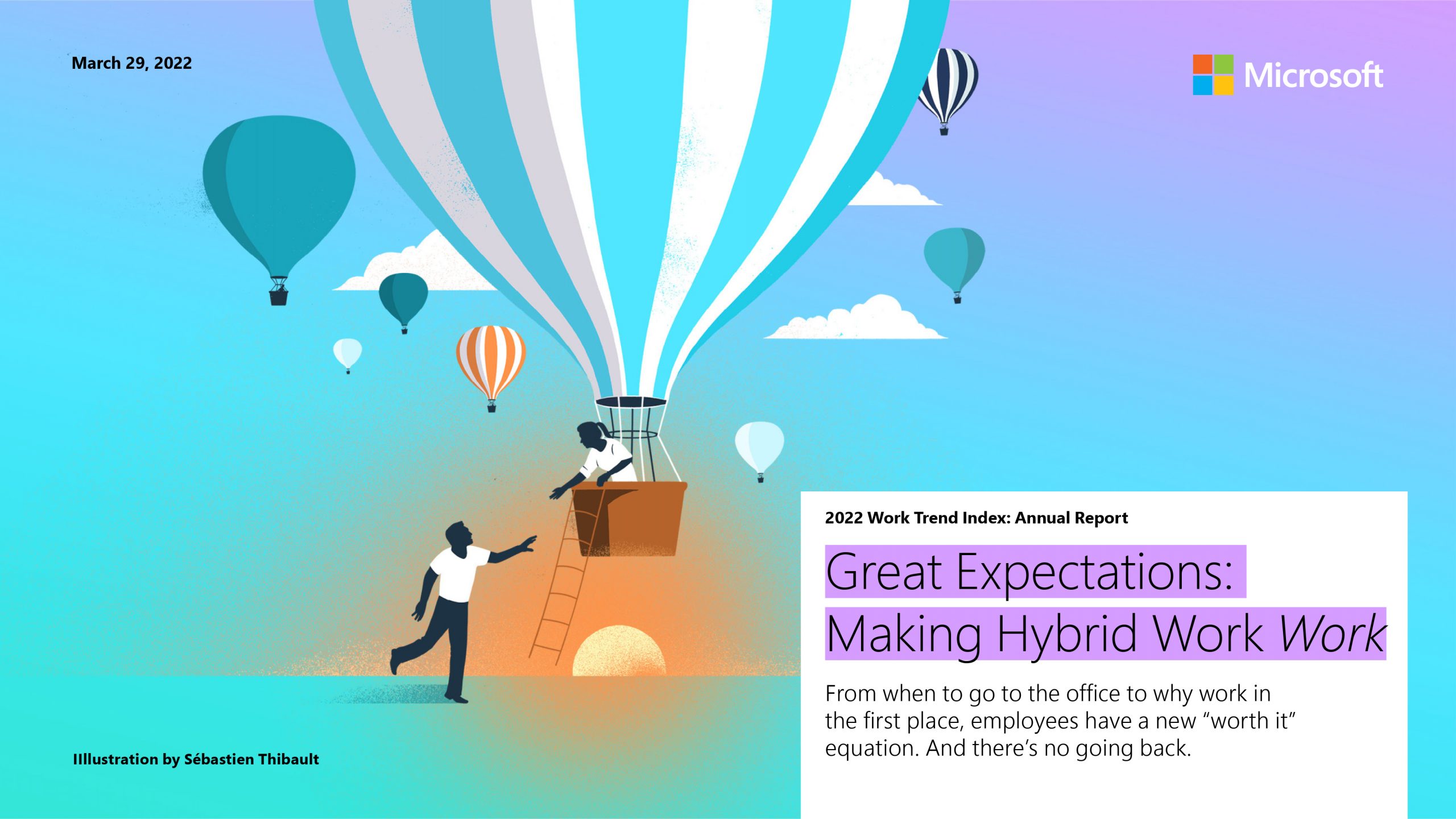Across the globe, employees’ priorities are shifting. One of the key findings of Microsoft’s annual Work Trend Index report, “Great Expectations: Making Hybrid Work Work”, is that employees now value results and relationships over hours worked. New Zealand business leaders are listening to this and re-evaluating their measures of employee success. As we find our way in this digital-first work world, embracing new ways of working- and networking- will be key to elevating productivity and retaining staff.
The world of work has experienced some dramatic changes over the past two years, most notably the transition to online working, but the one that interests me the most is the shift in mindset we’re seeing around productive work practices.
If the pandemic has taught us anything, it’s that you don’t need to be in the office from 9-5, 5 days a week to generate results. In fact, 80 per cent of respondents in Microsoft’s annual Work Trend research reported that they are more productive now they are working in a hybrid set up. Experiencing this new way of working has led New Zealanders to reconsider their definition of productivity and what drives it.
It’s not about who’s sent the most emails or spent the most time sat at their desk anymore. It’s about who’s smashing goals, who’s getting praised by clients, who’s raising the team as a whole. They want to be known for more than clocking in and clocking out. They want to be recognised for the value they bring to the company.
Forward-thinking New-Zealand business leaders are noticing the importance of this and 1 in 3 say they’re rethinking how to measure productivity within the next year. Focusing on traditional measures of inputs rather than outputs is problematic as it leads to overwork, burnout and ultimately produces fewer bottom-line results.
Networking for productivity
When you think about being productive, you probably don’t think of chatting to your work mate- however across the globe employees with strong work relationships reported being 50 per cent more productive than other employees in the research. New Zealand is known as a nation where networks matter, the old adage it’s not what you know, but who you know, rings true everyday in business. What is reassuring to see is that Kiwi’s have even managed to maintain their networks through the lockdowns of the past two years, with over half reporting they have thriving relationships with co-workers.
The Work Trend Index report found 45 per cent of global employees now place more value on internal networking than before the pandemic. They are seeking opportunities to collaborate on projects and training initiatives that enable them to make a difference. If these opportunities don’t exist in their current company – they will move to one where they are, after all this is the era of The Great Resignation. Data from the Work Trend Index report shows that employees stay at companies that offer networking opportunities twice as long than at those who don’t. Leaders must start empowering their employees to build internal relationships or risk losing them.
The Metaverse is coming to work
How are employers supposed to bring employees together when more and more of them are choosing to work remotely? Well, if employees can deliver greater business impact without being in the office, maybe they can also build meaningful relationships without being face-to-face. One avenue to explore is the meta-verse. It might sound like science fiction to some, but it’s actually closer to science-fact for the majority. The metaverse will be the next generation’s videoconferencing. After all, fifty years ago few people would have expected to be attending meetings from the comfort of their own home office. Now, avatars alleviate the pain points of virtual meetings by more clearly demonstrating your body language. They are already starting to feel more natural than standard audio calls.
As we continue to navigate this new way of working, we need to reconsider what it means to be “productive”. This year, the key focus for leaders should be empowering distanced employees through networking activities. If companies are to retain staff during this time of the Great Resignation, they must shift their focus to the impact of people’s work rather than their activity and prioritise relationship building. The organisations that will be most successful at this, will be those that think creatively and implement emerging technology such as the metaverse.

